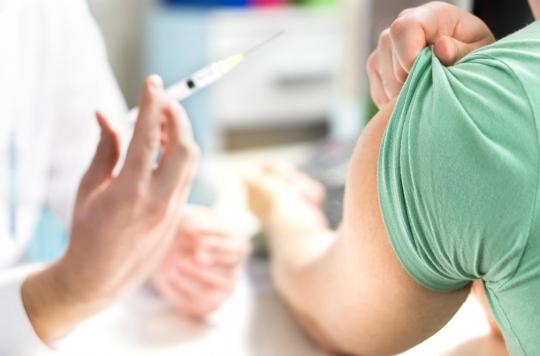To speed up the vaccination campaign despite the delay in the availability of vaccine doses, HAS recommends extending the time between the two injections. For its part, the Academy of Medicine had expressed reservations about this practice.

- Extending the time between the two doses from 21 to 42 days would make it possible to vaccinate 700,000 more people
- For the Academy of Medicine, this practice must be limited to the people least at risk
Forty-two days – instead of twenty-one – between the two doses of the anti-Covid-19 vaccine: this is the new recommendation from the Haute Autorité de Santé which aims to facilitate the acceleration of the vaccination campaign. .. despite a reduction in the doses available because the laboratories are no longer able to supply. In a way, the second dose is postponed for three weeks to allow more people to receive the first.
Be able to vaccinate 700,000 more people
“Faced with the outbreak of the epidemic and in a context of limited number of doses of vaccine and in order to allow an increase in the vaccination coverage of the most vulnerable people, extending the time between two doses is an option to consider”, underlines the HAS in a press release published on Saturday January 223. The expected “benefit” of this postponement is the possibility of vaccinating “at least 700,000 additional people”. This with, still according to the HAS, “the risk of a loss of effectiveness of the vaccine which seems limited”, but on condition of respecting the priority for those over 75 and of ensuring the real use of all vaccine doses available.
Certainly, this desired postponement of the second dose beyond the three weeks announced by the manufacturers of the vaccine themselves as the optimum time to be assured of its effectiveness will effectively allow a greater number of people at risk or priority to start be protected from severe forms of Covid-19. But this decision is not without risk.
The reserves of the Academy of Medicine
If the Academy of Medicine has recognized itself that “the late administration of a booster injection does not compromise its effectiveness since it is generally followed by a rapid re-ascension of antibodies and a strengthening of ‘protective immunity’, she also underlines the limits of this exercise. “The persistence, in a context of epidemic resurgence, of a low immunity rate during the additional weeks preceding the second injection must be considered”, she underlined in a press release of January 11.
And the Academy recalls the “individual risk of aggravation” linked to the prolongation of a state of increased receptivity in people with a low level of neutralizing antibodies and, even worse, the weakening of the expanded vaccination coverage. by a low level of immunity which “will constitute a favorable ground for the emergence of one or more variants escaping the immunity induced by vaccination”.
These possible consequences of the postponement of administration of the second dose of the vaccine therefore encourage the Academy to recommend:
– To comply as much as possible with the vaccination schedule prescribed by the manufacturer, which is 21 days between two doses for the Pfizer vaccine and 28 days for the Moderna vaccine;
– To postpone the injection of a second dose “only if the circumstances so require”;
– To reserve this extension of the period between two doses for people under 50 years of age and presenting no risk factor for serious forms of Covid-19.
Which, in fact, does not fully correspond to the public currently concerned by this start of the vaccination campaign, the over 75s and people with high risk factors. Only the health professions which are also concerned by this first wave fall – outside the criterion “under 50” – within the framework of the recommendations of the Academy of Medicine.
.















